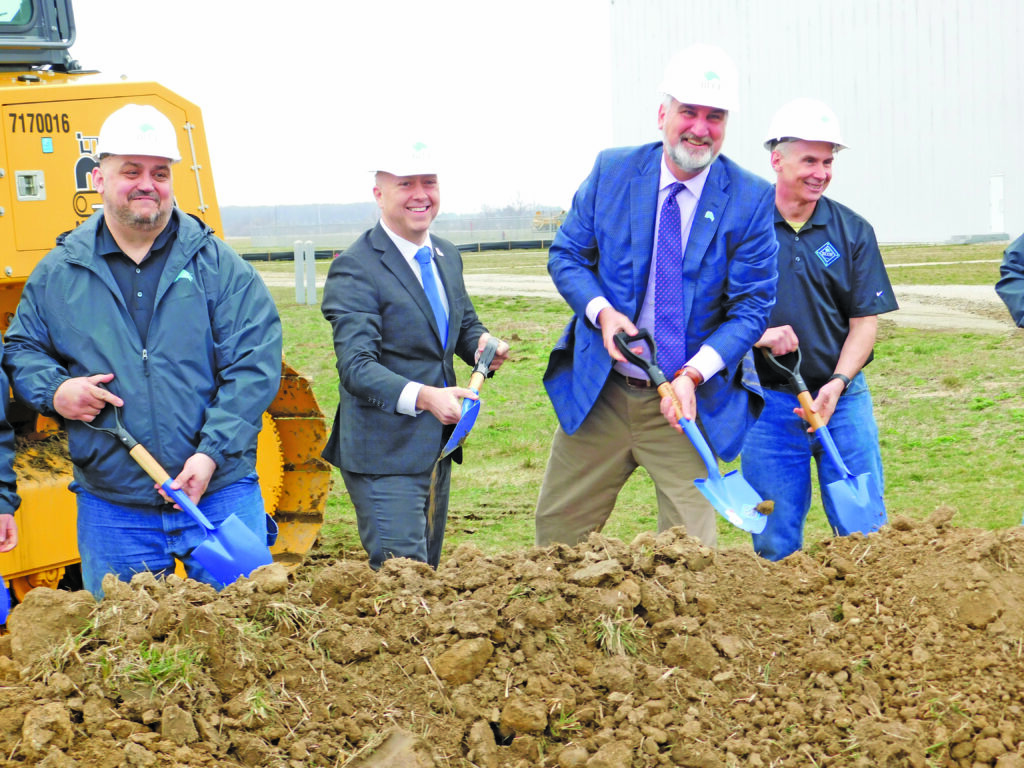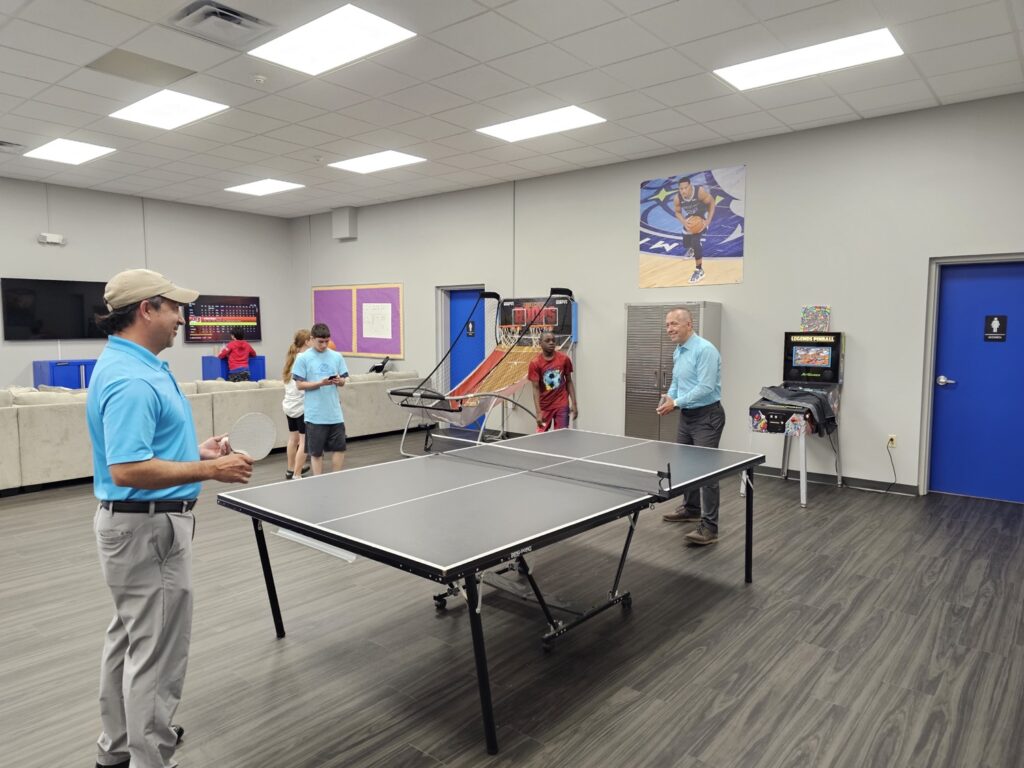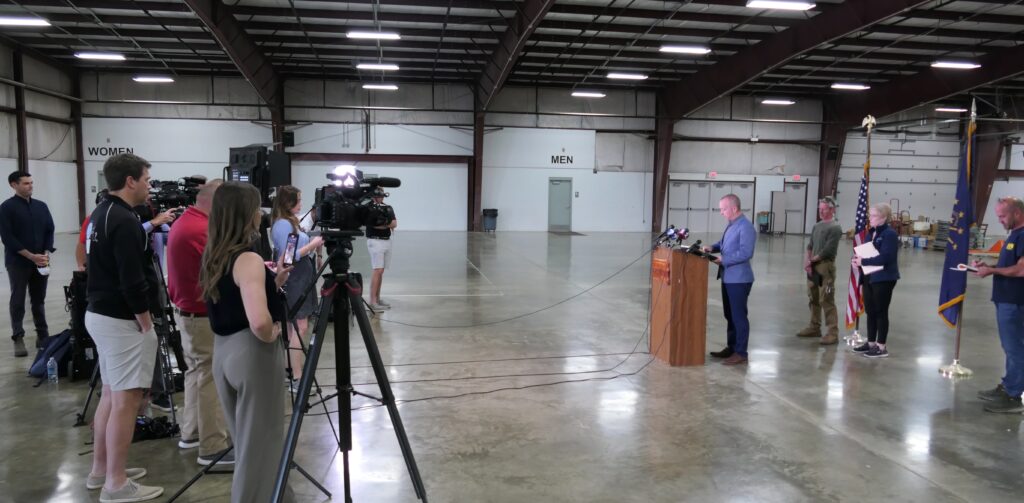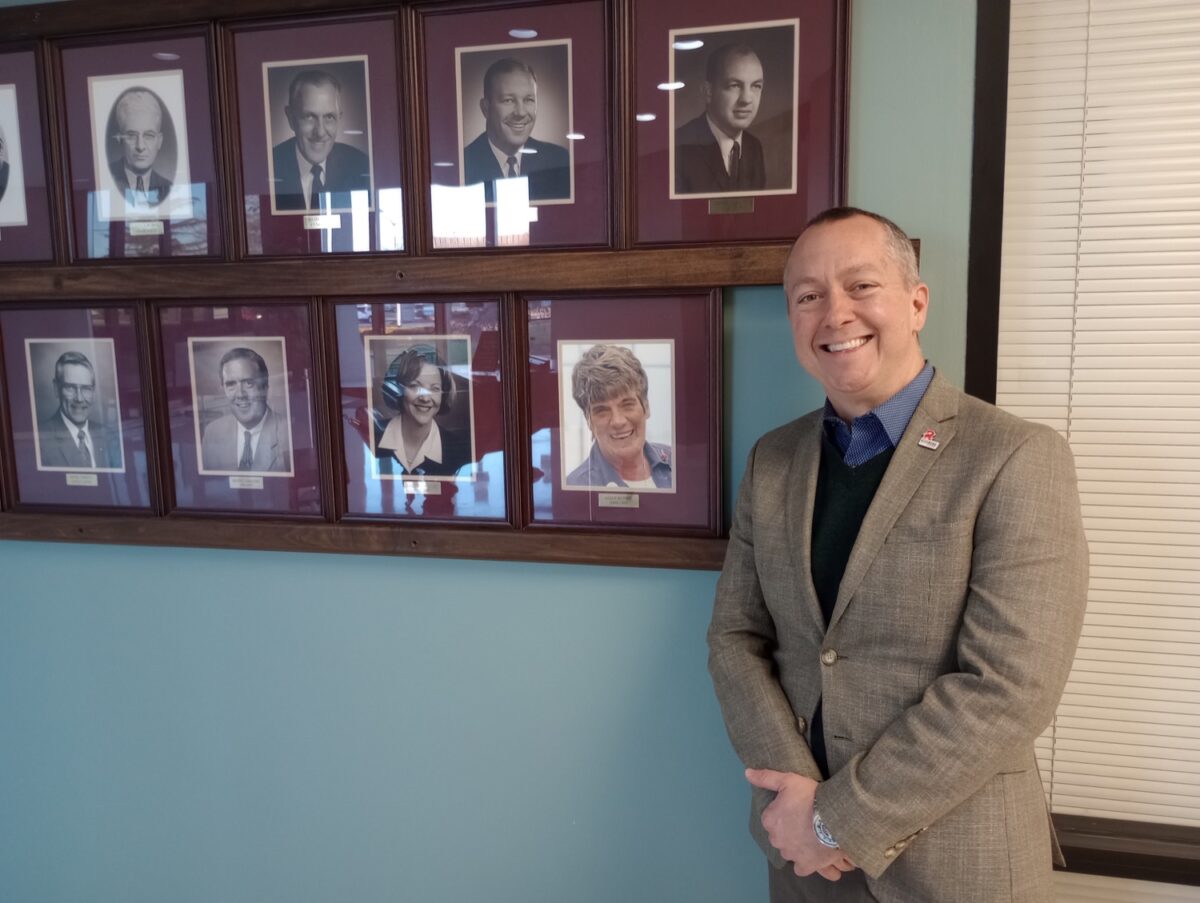A young Dave Snow dreamed about two things: being on the radio and serving as Richmond’s mayor, two jobs that connect with his hometown community.
Mayors spoke to students, and Snow would hang on every word, fascinated with their work. Later, while a broadcaster, Snow knew Mayor Sally Hutton, who eventually encouraged him to try and live his mayoral dream after her three terms.
“I was so enamored with Mayor Hutton and the work that she did and I saw her as such a central figure of the city — someone that cares for the city, looks after the city, protects the city, gathers the city, heals the city and sets a vision to move the whole city forward,” Snow said. “I have always seen that as a pivotal role in the health and wellbeing and forward motion of a city and a community, and always wanted to be at the helm of that.”
Running as a Democrat, Snow won two terms before losing this year’s election to Mayor-elect Ron Oler. The dream came and “went by in a blink,” leaving Snow grateful for that time.
“This has been a humbling and challenging and gracious opportunity gifted to me by this community to get to lead my hometown, and I’m very thankful for every minute of that opportunity,” Snow said.
First campaign
While employed in radio, Snow also worked to better the city. He was involved in the city’s annual Fourth of July fireworks and initiated community-building events such as the Fireworks 5K race, CityFit and CityLife.
“Becoming mayor should be the natural byproduct of the good work you’re already doing for the community, in my opinion,” Snow said.
Snow figured in 2015 that even if he didn’t win the mayoral race he would learn from the experience.
“I feel like I’ve been the same Dave from the radio days to the first campaign to being mayor to the second campaign into the second term, I’ve always tried to be the same guy that you’re going to bump into at the grocery or at local events, always the same guy,” Snow said. “That’s been important to me.”
Snow’s defeat of Republican Kyle Ingram put him in charge of all aspects of the city beginning Jan. 1, 2016. The mayor takes control of city buildings and property and makes decisions about the city services carried out by more than 400 employees in 12 departments.
Residents aren’t always aware about the complexity of city services and of decisions mayors face. Snow said there rarely is a decision with an obvious good or bad, or wrong or right choice. Mostly, the mayor chooses between multiple bad options, trying to decide which is least harmful.
“Therefore, after you make decisions and go to the grocery store, people will say, ‘I can’t believe you made such a stupid decision,’ but they don’t realize the other three or four options were even worse and that you don’t have a choice,” Snow said. “You can’t always manifest a tremendous scenario where things are all great, and that’s really the difficulty of the job.”

Citizens will express displeasure over the mayor’s decision, especially with social media now prevalent. Often, the mayor’s in a lose-lose situation regarding public opinion. Any decision is likely to upset some portion of the city. Snow said mayors need to understand that compliments and insults are basically the same thing.
“If someone pays you a compliment, it’s quite possible they’re only doing that because they have a very specific agenda and they’re trying to pull you off center, but someone insulting you is exactly the same thing,” he said. “Learning to treat compliments and insults the same will help you continue to be yourself.”
Beginning work
Snow ran for office with a clear vision about where he wanted to lead the city. He promised that if elected, collaboration and partnership within city government and with Wayne County government would eliminate existing friction.
The mayor attributes important achievements like infrastructure projects that attracted Blue Buffalo, growth and investment in the Midwest Industrial Park and tearing down the former Reid Hospital, one of his campaign promises, on the lack of infighting or gridlock.
“This community has benefited greatly from the partnership and collaboration that we’ve fostered,” Snow said. “We’ve had no infighting or gridlock. We’ve been able to put aside politics and complete a lot of very beneficial projects that were all very much a team effort.”

That work extends beyond the elected officials, however. Snow credits the city team’s expertise and work. He said it’s his job to “shed the spotlight and accept the blame,” and it’s hard not to have impostor syndrome.
“To sit at the table of department heads and all 400 people who work here who are all experts in their field and work so hard, and they are gracious enough to let you be mayor and to have your role here, can some days be very hard to accept,” Snow said. “You have to realize that you’re on other people’s shoulders and be gracious about it and not feel 3 inches tall, and it can be very difficult.”
Snow said his 2015 campaign vision has been completed, except for reestablishing a Human Rights Commission. He’s proud of a “huge renaissance” that has involved tripling the city’s bottom line, spearheading more than $100 million in street and road investment, seeing more than half a billion dollars of industrial park investment, creating 1,000 jobs, completing sewer projects, helping parks thrive and organizing the largest single investment in Richmond’s downtown with recently announced apartments.
“I realize that in doing that we kicked up a lot of dust and put out a lot of road cones and people were upset,” Snow said. “But I believe very much in Richmond, and I want Richmond to have every dollar that’s out there so that we are investing in this city and making it the best it can be.”
Difficult times
Among those successes, the new Human Rights Commission never materialized. Work went into developing a sustainable version of the HRC, an agency that previously provided civil rights protections for residents experiencing discrimination, but was defunded by Common Council in 2009. Snow said financial constraints resulting from the pandemic prevented implementation. Snow had hoped to finish the HRC’s development during a third term.
“It needed to be stronger than we were able to make it at that time,” he said.
COVID struck right after Snow’s second term began, and it presented challenges throughout those four years. Like the HRC, many projects were impacted, such as the second phase of the Loop path that the Indiana Department of Transportation delayed.
“It was definitely a setback; however, it came with important responsibilities and it came with a real lesson in American citizens’ tolerance for government restrictions in the face of challenges and health implications,” Snow said of COVID. “We have a better understanding now of how that relationship should function moving forward.”
COVID did not present the only challenge during Snow’s eight years. Multiple city team members died, including the Aug. 10, 2022, shooting of Richmond Police Department K-9 Officer Seara Burton.
“We faced some monumental challenges that I certainly hope no other mayor has to face,” Snow said. “We’ve been through some really difficult times together as a community, and we have learned together and struggled together and grieved together, and for me, that has built a very deep connection between myself and this community as a whole. Elections don’t change that.”
Snow had no playbook for how a mayor should handle a tragedy. However, he took what he learned, worked with Meridian Health and developed a framework to share with other mayors. Snow, who has served as president of the Indiana Conference of Mayors, hopes that organization will implement the resulting guide.
“I do think that it’s critical to pass some of that information to other mayors, particularly when they are newly elected, to give them some foresight before something like that happens, so they are not searching for it during a time of chaos and crisis,” Snow said.

Moving forward
After the successes and challenges during the past eight years, Snow leaves office, hoping his work simply becomes part of the fabric of Richmond. He pointed out that nobody now thinks about the mayor who installed Glen Miller Park or the mayor who protected Thistlethwaite Falls.
“My hope is that 50 years from now, some of the elements that I have led and implemented are just naturally a part of Richmond and no one thinks about them anymore,” Snow said. “I think that’s the greatest compliment to the work of a mayor.”
Mayor-elect Oler’s work is just beginning. He has an office in the city building, a city computer and a building passkey as he assembles his team and plans for his administration. Snow said he will support Oler’s decisions.
“What is of utmost importance is that we remember the success of the mayor is the success of our city, so we should always support our mayor and get behind our mayor and do what we can to support the mayor’s platform so we continue to move together as a city,” Snow said.
In his next chapter, which remains unknown, Snow said he wants to feed his passion of making Richmond better. Like when in high school, he wants to connect with his hometown.
“The people here, I truly believe, are the best people you’ll ever find anywhere,” Snow said. “This place is full of so much authenticity, solidarity, resilience, camaraderie and a true sense of community family that just cannot be duplicated anywhere else. That’s why I love it here so much, and that’s why I’ve loved serving in this capacity so much.”
A version of this article appeared in the December 20 2023 print edition of the Western Wayne News.

